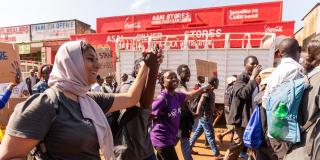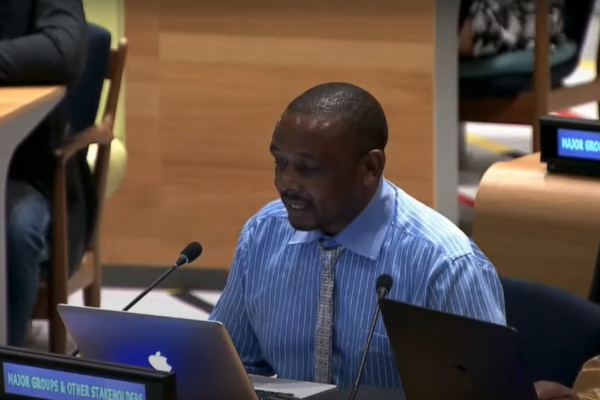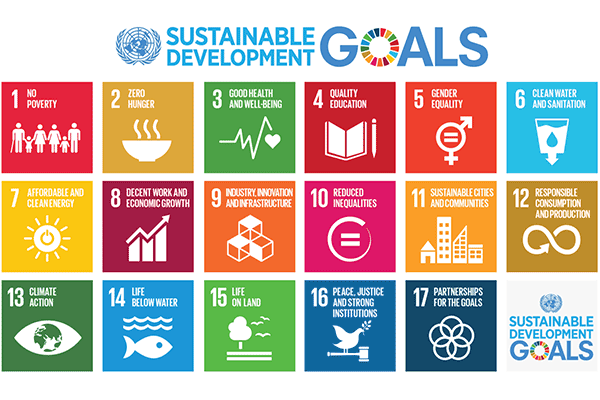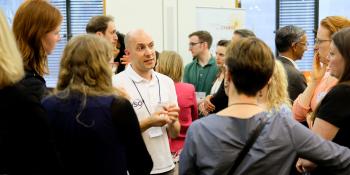
We make sure that the experience of volunteers, partners and marginalised people are heard and counted at regional and global levels.

Regional advocacy
Through the evidence from our programmes work in health, education, livelihoods and social accountability, we know that unequal access to resources, unaccountable governments and discriminatory attitudes are the root causes of so many of the issues faced by those we work with.
This is why our regional policy and advocacy work focuses on influencing policies and practices at local and national levels across the countries we work in. This can mean influencing legislation, working with governments on national strategies, or helping to strengthen civil society organisations in the Global South.
Recently, we’ve helped to improve the rights of disabled people in Kenya, helped the African Union to coordinate its Continental Volunteer Platform and, through drawing on our programmes work in girls’ education, helped to shape education policy in Nepal.
We don’t just work to get girls into school; we work to improve national curricula so that the education they receive there is high-quality, gender-inclusive and will allow them to succeed.
We don’t just work to provide humanitarian assistance to those suffering from malnutrition; we advocate for the voices of marginalised farmers to be heard at the highest levels so that global food systems are changed to work in their interests.
And we don’t just provide healthcare to those that need it most; we work to change the attitudes, policies and practices which lead to poor health outcomes amongst marginalised populations in the first place.

Global advocacy
Through our global advocacy, we also work to bring the voices of the most marginalised into institutions like the United Nations. We do this through our membership of the Volunteer Groups Alliance, which has a seat at the UN, and through our participation in conferences like the Commission for the Status of Women (CSW). We bring the voices of marginalised people, evidence and recommendations from our work to feed into global policy at the highest levels.

VSO and the Sustainable Development Goals
The Sustainable Development Goals (SDGs) are a collection of 17 interconnected goals designed to be a blueprint to achieve a better and more sustainable future for all. They were agreed in 2015 by the United Nations General Assembly, with all countries signed up to them.
All of VSO’s work is aligned with the Sustainable Development Goals, and we also support volunteers, partners and communities to hold leaders accountable to their commitments.
Voluntary National Reviews
As part of the SDG process, countries must report annually on their progress to the United Nations, in a process known as the Voluntary National Review. All countries, whatever their level of development, must participate in this process, including the UK, which reported on our progress towards the SDGs in 2019.
This year, over 40 countries will be reporting on their progress towards the SDGs at the UN’s High Level Political Forum, known as the HLPF. Of these, five – Myanmar, Pakistan, Thailand, Zimbabwe and Sierra Leone – are countries where VSO works.
Throughout 2021, we will be working with citizens and communities to bring the voices of ordinary people into the reports produced for the HLPF. We'll ensure that the reports reflect the experiences of ordinary people, particularly those from marginalised groups, and that they are able to hold governments to account on their commitments towards the SDGs.
Leaving No One Behind
The Leave No One Behind project is being implemented by the International Civil Society Centre (ICSC) in 5 countries – Nepal, Bangladesh, India, Vietnam, and Kenya – with VSO leading on implementation in Nepal and Kenya.
The project will strengthen countries’ abilities to monitor and review SDG implementation, through involving and empowering the most marginalised groups.
In order to do this, VSO uses a Citizen Led Monitoring approach. We use tools such as community scorecards to monitor the delivery of health and education services, and hold governments accountable on SDG delivery. We are proud of this partnership with the ICSC, which will ensure the voices of primary actors are heard and counted at national and global levels.
The Global Standard for Volunteering for Development were launched at the IVCO conference in 2019
VSO and global leadership on volunteering for development
Globally, one billion people volunteer, and the UN has stated that the SDGs will not be achieved without the contributions of volunteers. As a global leader in volunteering for development, VSO works to help countries around the world harness the power of volunteering to deliver on the SDGs.
As part of our global leadership activities we promote and support the value of volunteering for development. This has included leading the development of the world's first Global Standard for Volunteering for Development on behalf of the International Forum for Volunteering in Development.
The Global Standard is the result of a year-long period of consultation, developed with volunteer involving organisations from over 80 countries. The Global Standard helps organisations to understand and deliver responsible and impactful volunteering, and encourages continuous learning and improvement across the sector.
More on our influencing and advocacy work

Making the case for UK Aid
At VSO, we believe in taking a stand for the good of international aid and development.
